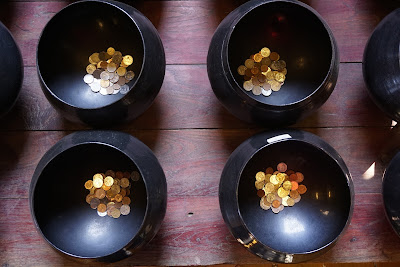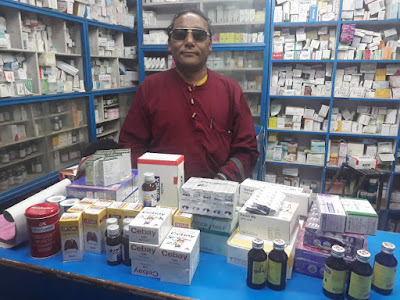Why not donate or give alms when we travel to countries of the South?
 |
| Boys and girls in one of the projects Kenya |
We travel to Kenya, Peru or India and the brilliant idea occurs to us. There they hardly have toys or clothes, so: sure any donation is welcome! We load the backpack with what we think can be useful. And, the worst: we distribute it randomly. Perhaps, when a child approaches us in the street. Or our guide. We believe that we have acted generously, that our trip leaves a positive mark. But, EYE! donating on our trips is irresponsible And it can have much more negative consequences than you imagine. Because?
We tell you in 5 keys:
1 The rod before the fish
“Give a man a fish and he will eat for a day; teach him to fish and he will always eat”. The phrase is a bit hackneyed, but it defines the idea we want to express. In most countries of the South, it is not that difficult or expensive to get t-shirts or other products, but if we donate them we can harm the local textile industry.
Donating clothes is a sensitive issue in Africa, for example. Over there the textile industries of many countries collapsed under the weight of second-hand clothing imports in the 1970s and 1980s. Conclusion: you have to know very well what, where, when and how to donate.
2 They are countries of the South, not landfills
Donate what we have left over, it's old and we don't use it it is not donate It's getting rid of things. Mobile phones, computers, glasses, clothes, toys... There are many people or companies who decide to collect and donate them when they travel. And they mean well, but without realizing it: they are turning the countries they visit into landfills!
With technology, the problem is compounded. We send old computers that, in a few months, or a maximum of a couple of years, stop working. They are useless and end up creating huge landfills which, apart from contaminating, affect people's health and can even generate child labor.
 |
| Giving alms is a serious issue: it can encourage child exploitation. |
3 Your handout makes them dependent
Giving alms can have terrible consequences. The first: encourages the exclusion of people who request it and increases your dependency. By obtaining quick income, they stop attending training programs, job placement, etc. In short: they stop fighting to change their situation.
If, on top of that, the person who asks you for alms is a boy, girl or person with a disability, the situation worsens. You may be feeding the mafias, who exploit the people who get the most handouts and, of course, keep the money.
 |
| Thanks to a donation promoted by Tumaini, medicines were purchased for Nepal. |
4 You do not know their real needs
Do you know the reality of the country you are going to visit? Do you know what the boys and girls you are going to meet need? If you do it on your own, you can donate things that are not really needed. Or, what is worse: generating new needs that later on the children will not be able to cover.
For example, many people carry the backpack loaded with candies or Chupa-Chups. Many of the children and people in these countries do not brush their teeth continuously, so it is a bad idea for them to eat sugar.
| In Kenya, we raised funds to improve the facilities of a collaborating orphanage. |
5 You can harm the project with which you collaborate
In TumainiWe have volunteered in NGOs in more than 8 countries in Asia, Africa and Latin America. And we have seen a very serious mistake made! The volunteer person brings school supplies for the project with which they collaborate. Go to school, and he begins to distribute the notebooks and pens to the boys and girls who approach him. That should never, ever be done because:
- You don't know if the project needs that material right now Or if you could get much more out of it later on: in another class, with other needier boys and girls, etc.
- It may be that not all the boys and girls are in the project that day. You will leave some children without their notebook and that can affect both their self-esteem and their relationship with the rest of the children and teachers.
- There are always children more open than others. The shyest children usually arrive later and may be left without a donation.
- You will change the rhythm of the class and will affect the rest of the activities scheduled for that day.
 |
| Donation to buy a wheelchair for Dennis in Iquitos. |
So are all donations bad?
No but each project has its needs, and you have to know them. Furthermore, they are constantly changing. A group of new, older boys and girls may suddenly arrive at school and need other types of materials. Or that one of the adults who goes to the NGO gets sick and what is really needed is money to pay for his treatment.
In Tumaini, always We ask 3 things to people who make solidarity trips with us:
- If you want to bring a donation for the project, before they have to consult us. It is a must! When we receive your proposal, we discuss it with the coordinators of each project so that the donation fits exactly what they need.
- The donation will always be delivered to the coordinators of the project, NEVER to children, adults, etc. directly. This is how we make sure that the distribution is fair and equitable.
- We only accept donations of products that NGOs have requested from us. If it is a donation, the volunteers take it to the project. If not, it is best to buy what is needed there to promote the local economy.
In 2019 give your vacation a twist: travel responsibly!




